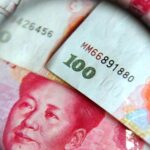Problems faced by Financial Market in China
China is suffering from the problem of rent seeking and corruption, all thanks to its regulated Financial Market. In order to help the nation curb these problems, the country needs to free its financial markets. In March this year, the State Council announced a new batch of restrictions. The restriction aims at curbing the speculative demand. The reforms announced include tighter policies on home purchase by non-locals in cities, capital gain tax of 20%, whooping down payment of 70%. Not only this, the council added reforms for second mortgage as well to an extent of 30% premium to benchmark interest rate. Well this sounds impossible for an individual but is true.
During the previous round/set of restrictions imposed 2 years back, the council succeeded in dampening the market sentiment to some extent but failed to control the rising property prices. However, the underlying restrictions are expected to impact the property market to great extent which till now relied on cheap credit.
Read on GWI Seven Reasons that China’s Economy might be slowing down.
In order to control the money supply, the people’s bank previously issued long credit quotas as guidance to banks but there was hardly any effect seen. The policy could be traced back to ties three decades ago when it was introduced in central planning system but only could result in artificial low price; the move which led to shortage of basic necessities.
Emergence of Free Market in China
Gradually free market was developed which resulted in emergence of dual prices. Again people with access to quota goods enjoyed the benefit of paying less and the government ended up paying subsidies to system’s “Losers” i.e., the urban residents and State-owned-enterprises (SOEs). Decades later, in response to global financial crisis, China loosened the credit quota and planning control of SOE run local government project. The move resulted in disbursement of heavy loans between the year 2008 and 2009. As a result of heavy grant, the rate of credit grew from as low as 14% to 35% in a year’s time by 2009. This led to the doubling of the price of properties in certain cities of China.
Also read Is China setting itself for a Big Crash as PMI drops precariously Massive Industrial Oversupply.
Low interest rates generated a mismatch in housing prices and supply, as they serve as hidden subsidy for those who can avail the borrowing facility and own luxury property. In order to curb the problem, the policy makers reversed the macroeconomic factors on the housing property front. The new quota generated dual price again for the property and created a problem for many groups. Elimination of quota so as to balance the rate of interest for SOEs and SMEs was not an option, owing to the complexity of real estate and bank credit markets. Thus the government ended up in a web.
Problems faced by the Policy makers
- The low interest cost for certain groups has become barriers for liberalisation, which will result in balanced interest rate
- It is argued that raising interest rate internationally will invite flood of speculative capital from economies having low interest rate, which when wiped off will be a major setback for the nation
- Lastly, improper understanding of inflation has created a disbelief in the minds of people about China’s ability to maintain inflation with level of exchange rate in OECD market.

Conclusion
It is well known that, if nominal interest rate is lower than the real rate of return, the economy is under financial repression. Thus it is important for People’s bank of China to increase nominal interest rate so that they are in line with the structural inflation. Thus to sum up we can say, the root cause for the problem in the economy lies with the low cost of capital. In order to curb the problem the country needs to maintain capital account control while raising interest rate to market clearing level.


